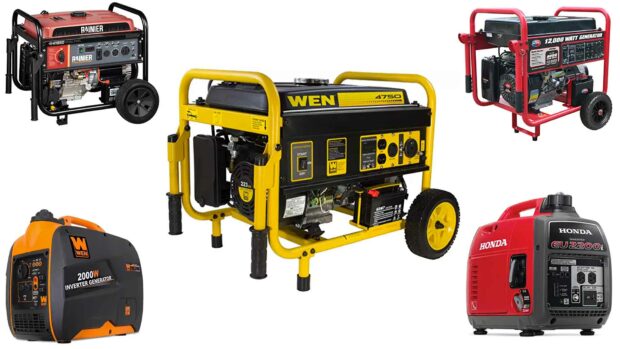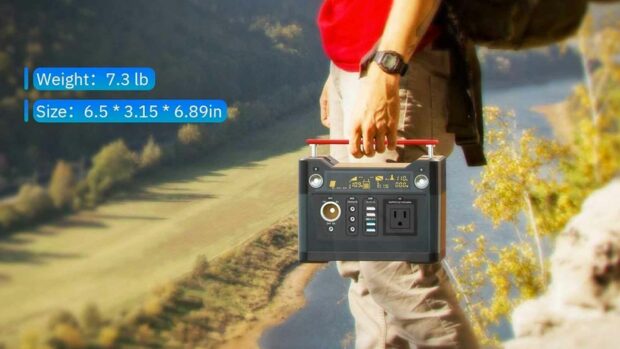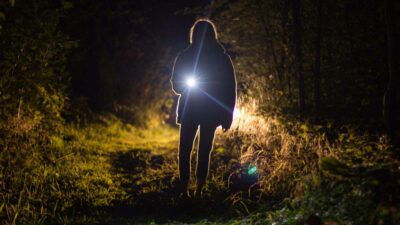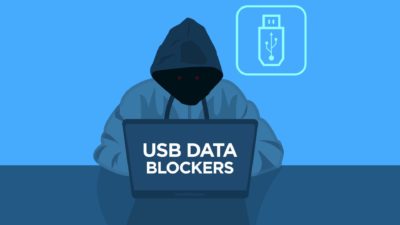When a major power blackout hit New York City in 1977, it resulted in widespread looting, vandalism and violence. In comparison, the massive 2003 power outage that disrupted electricity to 50 million people across Ontario and eight U.S. states for up to four days was more a severe headache than an occasion to run wild. Still, it brought a new level of awareness to millions — that being prepared is not so much a crazy survivalist notion as a common-sense necessity.
It’s important to be prepared at all times, but especially during the summer months — the so-called “blackout season” runs from the middle of the summer (mid-July) until the end of September — and in the dead of winter when ice storms can bring down power lines.
From hurricanes and fires to unpredictable failures in the electrical grid, your lights will eventually go out. The only question is for how long? #PowerOutage #Blackout #HowToSurvive Share on XThis guide aims to give some pointers to help you prepare your home for the next power outage and to help keep you and your family safe during the next power blackout.
Contents:
- Prepare An Emergency Kit
- Prepare Your Home
- Portable Power Generators
- What To Do When The Power Goes Out
- Additional Considerations
- Campers And RVs
- Fun Stuff: Blackout Entertainment
- Things You Should Not Do During A Power Outage
Prepare An Emergency Kit
You think ahead for any situation, so you already have an emergency kit ready, right? If not, the U.S. Government has some suggestions for a basic survival kit:
- Water: A three-day supply, one gallon per day per person.
- Food: A three-day supply, per person, of non-perishable food. If you include canned food, remember the can opener.
- Radio: Battery-powered or hand-crank powered, along with extra batteries. Consider an NOAA Weather Radio, or a portable that receives those bands.
- Flashlight: Go for an LED flashlight, which lasts a long time on a single charge. There are also hand-crank models available. Even better, consider a wall-plug emergency version that keeps charged and automatically lights up (so you can find it) when the power cuts out.
- First Aid Kit: You can buy a 100 piece first aid kit for as little as $10. You never know when little things like rubber gloves, tweezers or band aids will come in handy.
- Whistle: A whistle can help you signal for help. And if you’re in the dark for long and have to keep the kids from fighting, this could also serve as your referee whistle.
- Plastic Sheeting: Pack some plastic sheets along with duct tape and a dust mask.
- Personal Sanitation: Don’t forget items like wet naps or moist toilettes, garbage bags, plastic ties, and toilet paper.
- Basic Tools: You might need a wrench or pliers for turning off utilities.
- Maps: When you can’t use Apple Maps or Google Maps, some printed maps can help you navigate your city or local area.
Tip: Think about your pets (more water as well as food for them), people with special dietary needs and anyone requiring medication such as insulin. Make sure you have supplies handy.
Prepare Your Home For A Power Blackout
- Uninterruptible Power Supply (UPS): A UPS for your computer buys you a bit of extra run time when the power goes, as well as some protection from surges when the power comes back.
- A surge protector for your precious stereo, HDTV and video game console(s). When power is restored after a blackout, voltage may vary as the system stabilizes. Those spikes and dips can fry unprotected electronics.
- Smoke detectors. Many homes are equipped with hard-wired smoke and carbon-monoxide detectors. Make sure that you either have a model with battery back up, or supplement any hard-wired detectors with battery-powered models so you are still protected.
- A land line. If you’re not purely a cellphone user, consider keeping at least one old school, plug-in telephone around. When the power goes out, your cordless phones are useless but the old plug-in handset on the land line will still work. Land line handsets are still the most reliable way to reach your local emergency services.
- Wood. If you have a wood-burning fireplace or a wood stove, keep a supply of wood on hand. If you lose power during the winter, your fireplace may not be able to keep the whole house comfortably warm, but it does provide some heat in the immediate vicinity. It can also be used for cooking, and it should help prevent the pipes from freezing.
- A chain saw Though the occasional outage is due to a fault in the distribution system most are still caused by severe weather knocking down trees and distribution lines. A chain saw will come in handy when you need to charge your iPod and there’s an oak tree on top of your car. Steer clear of plug-in models!
Tip: Check your homeowner’s insurance policy and see what you’re covered for. Replacement of electronics equipment? Fire? Blackout-related property damage?
Portable Power Generators

If you can afford it and you have the room, portable power generators can be a nice bit of insurance. The recommended use is to run an extension cord from a portable power generator (running outside, of course), to a power strip in your home. The plug in a few basic necessities. Think lights, fans and maybe a fridge — don’t expect to power your whole home off of one of these. For an even safer usage consider having a manual transfer switch wired into your home’s electrical system. Keep gasoline handy or that portable power generator won’t be doing anything but sitting there mocking you with visions of what might have been.

If you don’t have the room, budget or inclination to go full hog with the backup generator, many companies offer inexpensive portable battery backup devices that will add another 3 or 4 hours run time to a laptop computer or power a fan or light for a night. Some of these can even be recharged via solar panels.
Tip: Portable emergency generators can be very popular items during an extended power outage — a little too popular, if you catch our drift. Consider chaining yours to a solid object to make it a less tempting target.
What To Do When The Power Goes Out
- If it’s electrical, turn it off: stereos, televisions, stoves, microwaves, lights. When the power comes back on, most devices demand a surge of power for their start-up sequence and every appliance in every home trying to start up instantly just taxes the electricity infrastructure again. Leave one light or a radio on as an indicator of when power is restored.
- Resist the urge to continually open your fridge and freezer. If you have to get something out, you have to, but the more you open the door, the quicker the interior warms up.
- On the other hand, if power has been out for an extended time, consider starting to use perishable food (like those prime steaks you’ve been saving for that special occasion) before it, well, perishes.
- Candles were often the fallback emergency illumination choice in the old days. There were a lot of house fires associated with power outages in the old days too; candles are OK, but only if used sparingly and watched very closely. Generally, you’re much better off sticking to a flashlight. While not as romantic, it’s highly unlikely to set your curtains on fire when the cat knocks it over.
Additional Considerations
- Fill a few large containers with tap water, just in case. If water treatment goes down, you can use the extra water for washing, or to refill your toilet tank. Some people fill their bathtub as well, but that’s seldom necessary — if you get that desperate for fresh water, there’s a large supply in most homes inside the water heater. You can access it via the drain spout at the bottom of the tank.
- If the power outage is widespread and long-lasting, there may be no working gas pumps in your area. So if you want to retain mobility, try not to ever let your vehicle’s gas tank get near empty. Keeping a jerry can of gas in your shed or garage gives you a bit of a cushion (Note: you should add a fuel conditioner or use the spare gas in your vehicle every few months and refill the jerry can to ensure the fuel doesn’t go stale).
- ATMs don’t work in a blackout. Neither do cash registers. Keep a supply of cash handy and you may be able to purchase supplies, assuming you can find a store that’s open.
- If you desperately need to recharge small electronics like GameBoys, cellphones or iPods and you have a vehicle, you can use an inverter plugged into the cigarette lighter (or 12 volt outlets) to recharge via the car’s battery. Too much, though (especially in the winter) and you’ll drain the battery to the point where you can’t start the car.
- Non-electrical entertainment can be a lifesaver when the power outage stretches into hours. Board games, cards, books, comics and coloring books can help fend off boredom for adults and kids.
- Try calling around to major retailers if you’re in a pinch for supplies. Some stores, including most big box retailers, have actually installed backup generators and are able to continue operating during a blackout. Even so, bring cash and don’t assume that services like debit or credit cards will be functional.
- If you live in a town or city, most likely stop-lights will not be working or blinking during a power outage. Treat every intersection like it is a four-way stop sign!
Campers And RVs Will Give You An Advantage
If you, or someone in your household, is a camper, chances are that you’ll have a foot up on the neighbors during a blackout. Just make sure your gear is in good shape, accessible and ready to go (ie., fuel and/or batteries available where appropriate). A few basic camping supplies that may come in extremely handy during a blackout include:
- Camp stove (for cooking or boiling water, not heating).
- Portable BBQ (same as above).
- Sleeping bags. Not all blackouts occur in the summer!
- Lanterns. Battery powered are OK in the house, fuel-burners should only be used outdoors.
- A multitool.
- A cooler.
- Water purification pills, if things really stretch out.
Tip: Keep your camp stoves, propane stoves, lanterns and BBQs outdoors, not in the house. If the carbon monoxide doesn’t kill you, there’s a decent chance that the flames might catch on something and burn the house down.
Fun Stuff: Blackout Entertainment
- Keep your laptop charged and a few movies on the hard drive (archived back-ups of your personal DVDs, of course) to help if people get bored. Remember, the battery will last longer if you’re running the movie from the hard drive and not playing an actual DVD.
- Weather permitting, go outside and look up. There’s so much nighttime light pollution in a typical city that the night sky during a power outage is almost unrecognizable with the number of stars visible. Bring binoculars if you have them.
- A lantern and some board games or a deck of cards can really help pass the time.
Things You Should Not Do During A Power Outage
- Plug a generator back into a household outlet. Back feeding, as the practice is known, bypasses household circuit protection and potentially puts neighbors and utility workers at risk of electrocution.
- Hook up gas power generators inside your home. Just like a car, power generators produce fumes and carbon monoxide. Keep the generator outside. If it’s too cold to crack a door and run an extension cord inside, then try feeding it under the garage door or through a basement window.
Surviving A Long-Term Power Outage
North America has been well served by its electrical grid for about 125 years, and for the most part, everything’s been hunky dory. However, if there’s one thing that experience has taught us, it’s that the more reliant we are on electricity, the more it hurts during those rare occasions when it’s gone. Don’t debate “if” you will experience a long-term power outage. Instead, shift your mindset to “when” you’ll experience an extended power blackout. From hurricanes and fires to unpredictable failures in the electrical grid, your light will eventually go out. The only question is for how long?
Related Articles:
- Inverter vs Solar: What’s The Best Type Of Quiet Generator?
- In Case of Earthquake, Do Not Tweet
- How To Create A Boredom Hurricane Survival Kit
- Simulation Film “Preparedness Now” Depicts The Next Big California Earthquake

Frank Wilson is a retired teacher with over 30 years of combined experience in the education, small business technology, and real estate business. He now blogs as a hobby and spends most days tinkering with old computers. Wilson is passionate about tech, enjoys fishing, and loves drinking beer.






















Leave a Reply